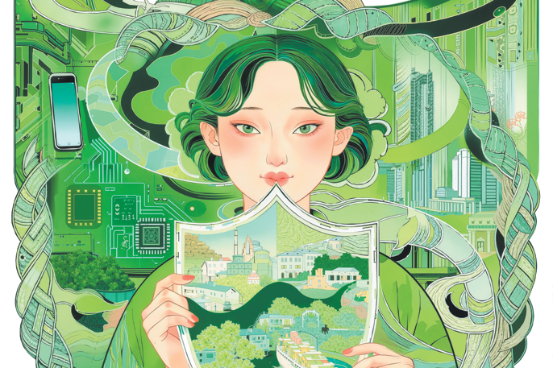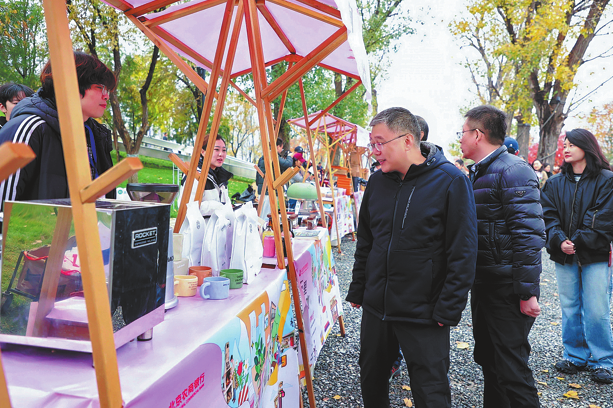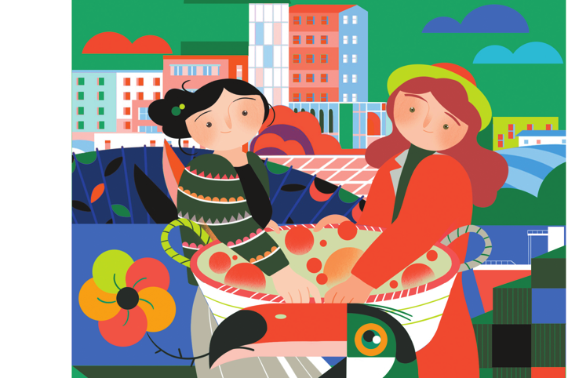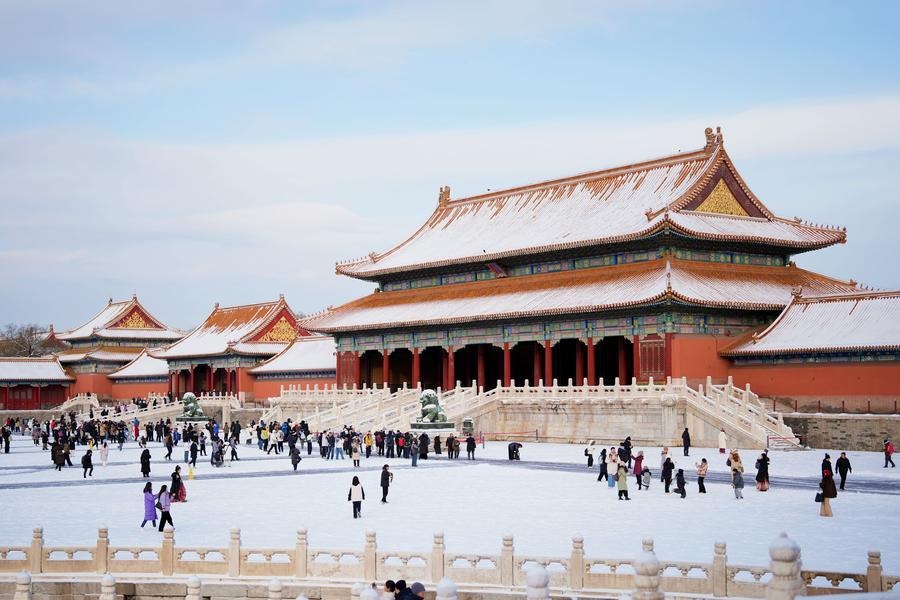Overcome Lunar New Year jitters to enjoy celebrations

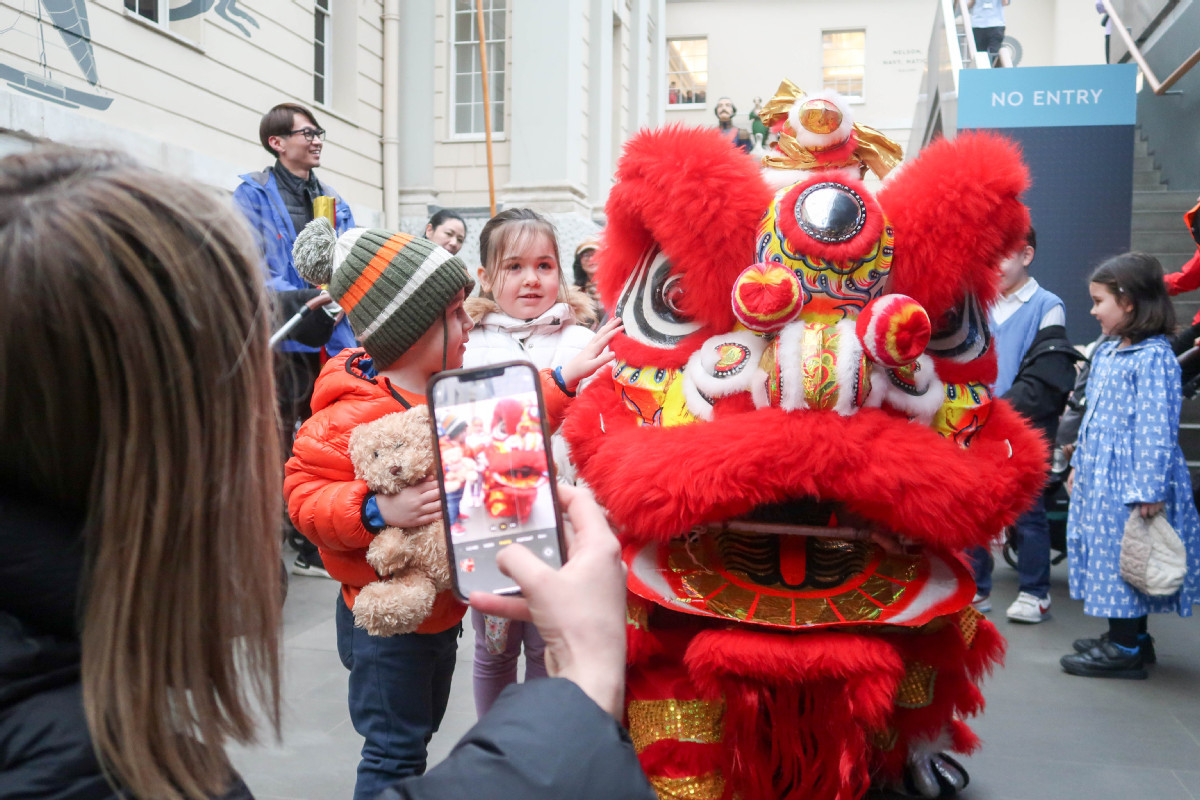
In the rich tapestry of Chinese traditions, Spring Festival is not only the grandest festival but also serves as a cultural metaphor. It symbolizes family reunion, the culmination of a year's efforts, and the hope for a happy and prosperous year ahead. But in contemporary society, shifting lifestyles and changing values have somewhat transformed the meaning and celebration of Spring Festival.
In particular, for the younger generation, the once eagerly anticipated festival has evolved into a time fraught with pressure, giving rise to a phenomenon known as "New Year phobia". It has become a complex intersection of emotions for youths — nostalgia for childhood memories and warmth of family gatherings, and a reflection of the past year's momentous occasions. As they transition into adulthood, the festival brings new challenges for youths, from becoming a giver instead of a receiver of red envelopes to facing the pressure of marriage and career building from family members. Media reports show the mental stress due to societal expectations, economic pressure of gift-giving, and "Spring Festival phobia" have cast a shadow over the once joyful occasion for youths.
German-American psychologist Kurt Lewin's theory of approach-avoidance conflict provides an insight into this phenomenon. While the youth yearn for the warmth of family and the joyousness of festive gatherings, and seek a supportive and inclusive atmosphere, they may feel overwhelmed by the weight of familial expectations, fearing they cannot meet elders' expectations regarding their career and marriage. Modern media amplify anxieties related to marriage pressure, income comparisons and excessive spending, contributing to the sustained anxiety among today's youth, disrupting their comfort zone and triggering a sense of fear.
As Spring Festival nears, the internal conflict the "New Year phobia" gives rise to is gradually manifested in multiple ways. In the era of information overload and technological advancement, contemporary youths struggle to find a balance between tradition and modernity, individualism and family values, societal expectations and personal worth.
With economic growth and increased material wealth, expensive gifts and cash-heavy red envelopes have become a yardstick for measuring the strength of relationships and the depth of interpersonal relations. This invisible pressure induces anxiety among many youths, especially when conversations during Spring Festival revolve around professional positions, income and achievements, prompting them to feel they are being evaluated or judged.
Discussions on subjects such as marriage and childbirth expose the widening gap between the younger generation and their parents, making youths feel that their freedom is being encroached upon. Additionally, frequent and often superficial social interactions during the festival, particularly with older relatives, are perceived by the youth as mere formalities, further diminishing their sense of value and contributing to the "New Year phobia".
To address the "New Year phobia" phenomenon, we propose three key initiatives.
First, the youth should take the lead in shaping a new Spring Festival culture by becoming the architects of their own celebrations. Instead of rejecting the festival cognitively or avoiding it emotionally, they could try to discover and appreciate their family traditions, and participate in their celebrations. Take red envelopes as an example. They represent the blessings of the elders. Such blessings, or red envelopes, can also be given through innovative means including multimedia greetings, a QR code containing self-created paintings, letters, and videos for a heartfelt blessing. After all, a youth-driven Spring Festival will be more exciting and celebratory.
Second, modern families need to adapt to the times and create a more relaxed family atmosphere. Despite the "New Year phobia", home remains the anchor for youths; it is a sanctuary for their souls and a buffer against societal stress. By accepting reality — in terms of youths' career and income — and providing support, families can help young people better cope with future challenges. Parents can proactively explore the city where their children work, not just waiting for them to come home for the New Year. When the psychological benefits of returning home for Spring Festival outweigh potential stress, youths will naturally embrace the celebrations wholeheartedly.
And third, contemporary society should be more open and inclusive, both preserving traditional customs and celebrations and using innovative ways to celebrate Spring Festival. While thousands of years of traditions should be preserved, it's not necessary to rigidly adhere to every custom. While upholding cultural confidence, it's crucial to welcome fresh ideas from the younger generation, and respect their new approach.
By leveraging technological advancements, we can tell the story of the Chinese Lunar New Year in a universal language. By embracing Spring Festival rather than succumbing to the fear of societal pressure, youths can effectively dispel the fear of marriage pressure, familial expectations, economic stress and obligatory social expenditure. And by preventing these pressures from taking hold of the mind, the youths can gradually dissipate their anxiety. This will pave the way for the emergence of a revitalized Spring Festival culture, allowing everyone to wholeheartedly partake in the celebrations.
Wang Bin is an associate professor of psychology at Southwest University of Science and Technology. Fu Haojie is a PhD candidate at Tongji University.
The views don't necessarily represent those of China Daily.
If you have a specific expertise, or would like to share your thought about our stories, then send us your writings at opinion@chinadaily.com.cn, and comment@chinadaily.com.cn.






















